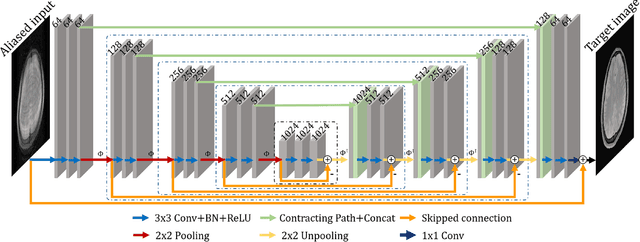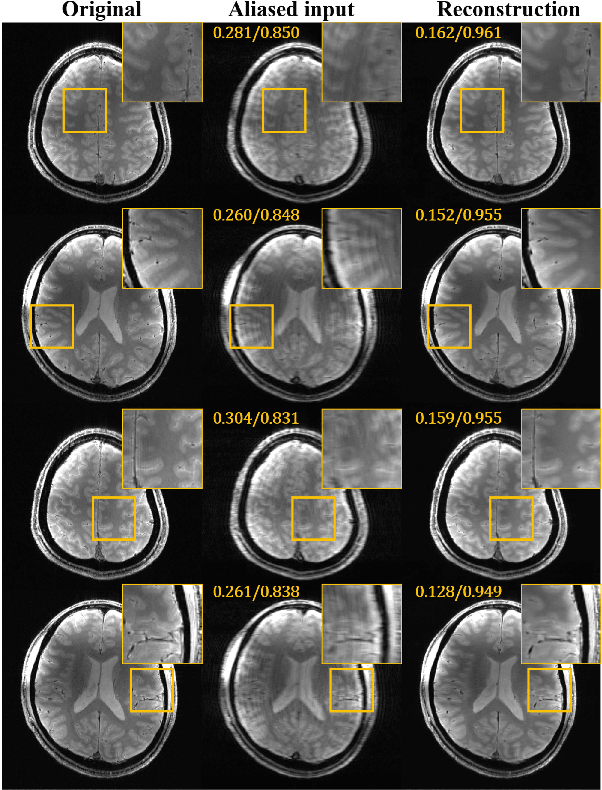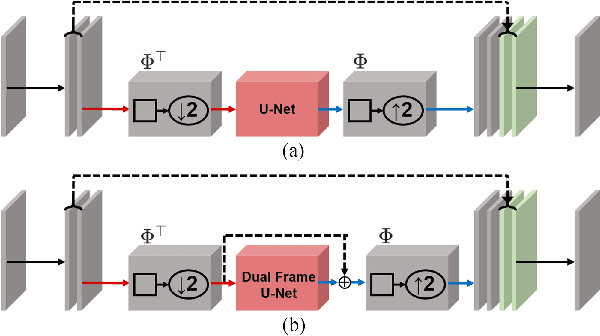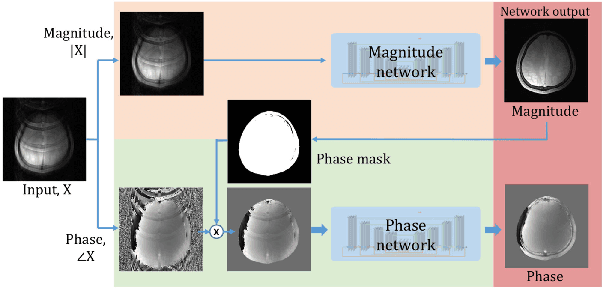Sungho Tak
Deep Residual Learning for Accelerated MRI using Magnitude and Phase Networks
Apr 02, 2018



Abstract:Accelerated magnetic resonance (MR) scan acquisition with compressed sensing (CS) and parallel imaging is a powerful method to reduce MR imaging scan time. However, many reconstruction algorithms have high computational costs. To address this, we investigate deep residual learning networks to remove aliasing artifacts from artifact corrupted images. The proposed deep residual learning networks are composed of magnitude and phase networks that are separately trained. If both phase and magnitude information are available, the proposed algorithm can work as an iterative k-space interpolation algorithm using framelet representation. When only magnitude data is available, the proposed approach works as an image domain post-processing algorithm. Even with strong coherent aliasing artifacts, the proposed network successfully learned and removed the aliasing artifacts, whereas current parallel and CS reconstruction methods were unable to remove these artifacts. Comparisons using single and multiple coil show that the proposed residual network provides good reconstruction results with orders of magnitude faster computational time than existing compressed sensing methods. The proposed deep learning framework may have a great potential for accelerated MR reconstruction by generating accurate results immediately.
 Add to Chrome
Add to Chrome Add to Firefox
Add to Firefox Add to Edge
Add to Edge